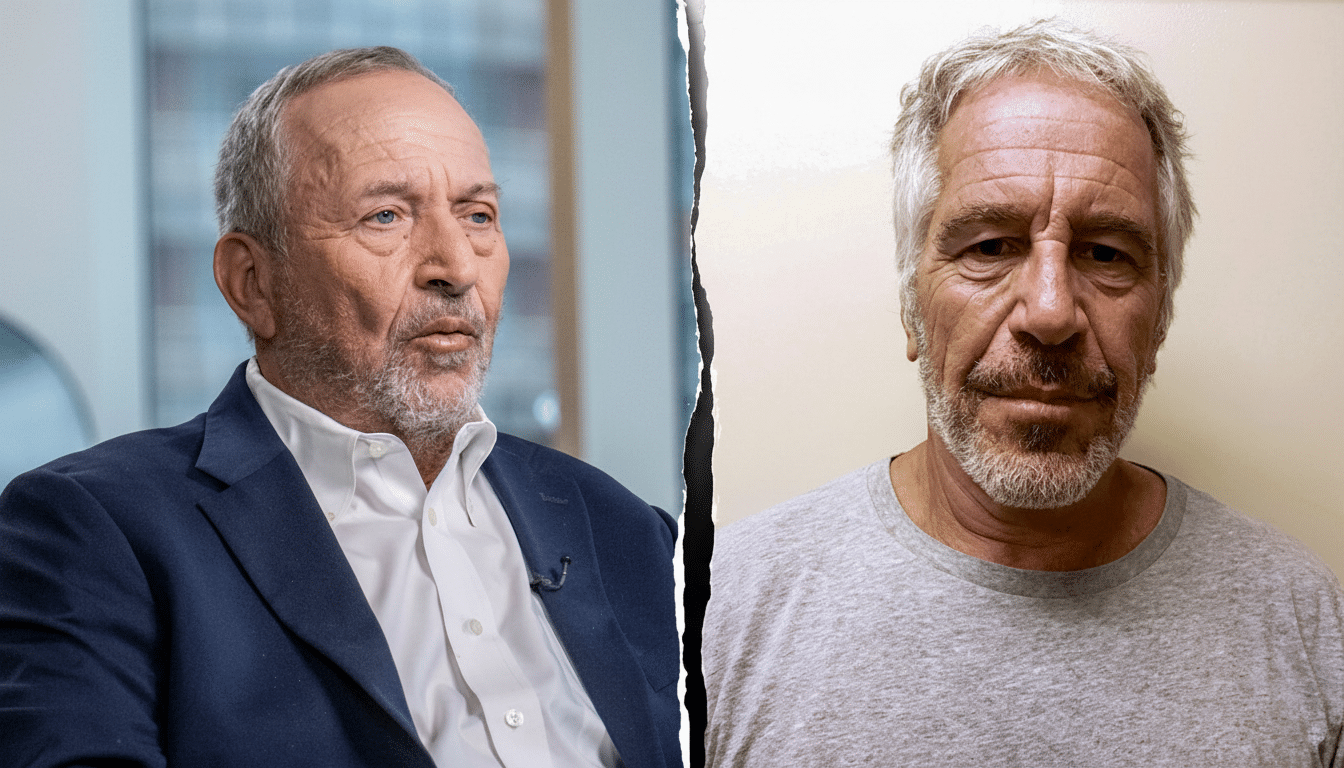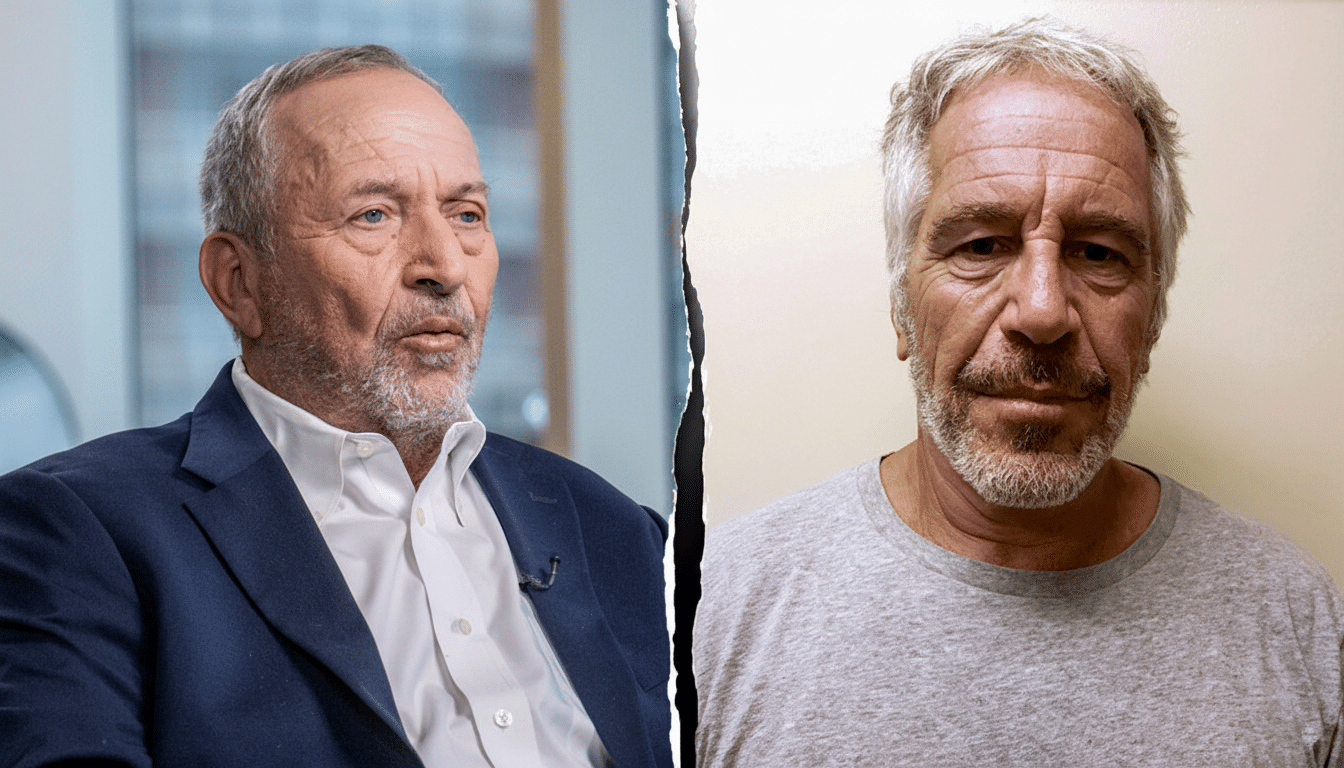OpenAI board member Larry Summers has stepped down from the company’s board, in response to email leaks from Jeffrey Epstein’s estate posted by the House Oversight Committee that have aroused attention around the economist’s past interactions with the disgraced financier. Summers and OpenAI confirmed the exit in a statement issued through Axios, which framed the move as part of his decision to go dark in public life as the revelations unfolded.
OpenAI expressed thanks to Summers for his service and point of view, while Axios said he plans to stay on as a professor at Harvard. The departure introduces another high-profile governance twist for a company already under intense scrutiny from regulators, its partners, and the research community.

What Leaked Emails Between Summers and Epstein Reveal
The collection of documents in the committee’s possession included a yearslong chain of emails between Summers and Epstein that continued after Epstein’s first criminal conviction on charges relating to sex with children, in Florida. In the exchanges reviewed by congressional investigators, Summers was seeking Epstein’s advice in entering into an extramarital relationship with a woman he described as his mentee on Wall Street, and Epstein called himself “a wingman.” The messages also contained derogatory comments about young women, according to summaries published by the committee.
According to investigators, the last message in the tranche arrived on the eve of Epstein’s next federal arrest.
While none of the emails indicate criminal activity by Summers, they increase pressure on institutions he was affiliated with to explain their vetting and monitoring.
Summers’s Past Connections With Epstein and Harvard
Summers and Epstein’s ties are not new. Epstein made millions in donations to the university while Summers was president, and received unusual access on campus, where he reportedly even had an office. Flight logs introduced at the trial of Ghislaine Maxwell indicate that Summers flew on Epstein’s private jet, according to the Harvard Crimson.
Harvard, as part of an internal review it conducted, has said that it accepted $9.1 million from Epstein over many years and that the rest — about $200,000 — was given to organizations that help victims of human trafficking. Those revelations have continued to haunt high-profile people who associated themselves with Epstein, and Wednesday’s email release highlighted how reputational risk can linger long after formal relationships are severed.

Implications for OpenAI Governance and Board Stability
Summers’s departure comes at a sensitive time for OpenAI’s board. In the wake of a leadership crisis that changed its oversight structure, the company has sought to emphasize stability and accountability in all things AI safety, commercialization, and partnerships. A surprise departure by a director — particularly one not related to decisions about product or research — raises fresh questions about the company’s background vetting, conflicts of interest, and crisis readiness at one of tech’s most scrutinized organizations.
Corporate governance experts say best practice is to do more due diligence on directors and then develop “clear codes of conduct that go beyond legal risk and talk about what it means for integrity” in the boardroom. Organizations like the National Association of Corporate Directors and the Council of Institutional Investors are pushing boards to view reputational risk as a strategic danger, not simply an issue for compliance checklists. For a company that is helping to build foundational AI infrastructure, the bar for trust — from developers, enterprise customers, and policymakers — is especially high.
It is also a reminder of how external controversies can distract leadership from essential priorities such as model safety, data governance, and responsible deployment. With public trust so mercurial in some cases, reputational shocks have follow-through effects into policy debates, talent retention, and ecosystem partnerships in a field like AI.
What Comes Next for OpenAI’s Board and Governance
OpenAI has not yet announced a replacement, but any search will presumably look for a director with strong governance credentials and as little conflict exposure as possible. Investors and partners will look for signs that board oversight remains cohesive, especially as OpenAI confronts mounting regulatory and competitive pressures.
At the same time, lawmakers are considering further releases from the Epstein cache — reigniting the idea that there may be more names and communications to come across a range of industries. For OpenAI, the immediate challenge is simple: show steady governance, reiterate cultural and ethical norms, and keep attention on the grind of trying to bend the technology productively into use.

